- Home
- Catherine Coulter
Beyond Eden
Beyond Eden Read online
This is a work of fiction. Names, characters, places, and incidents are either the product of the author’s imagination or are used fictitiously, and any resemblance to actual persons, living or dead, business establishments, events or locales is entirely coincidental.
Beyond Eden
A SIGNET Book / published by arrangement with the author
All rights reserved.
Copyright © 1992, 2000 by Catherine Coulter
This book may not be reproduced in whole or part, by mimeograph or any other means, without permission. Making or distributing electronic copies of this book constitutes copyright infringement and could subject the infringer to criminal and civil liability.
For information address:
The Berkley Publishing Group, a division of Penguin Putnam Inc.,
375 Hudson Street, New York, New York 10014.
The Penguin Putnam Inc. World Wide Web site address is http://www.penguinputnam.com
ISBN: 978-1-101-19046-3
A SIGNET BOOK®
Signet Books first published by The Signet Publishing Group, a member of Penguin Putnam Inc.,
375 Hudson Street, New York, New York 10014.
SIGNET and the “S” design are trademarks belonging to Penguin Putnam Inc.
To Robert Gottlieb
my friend and my agent
for ten years.
To Robert Gottlieb
second time around
—twenty years—
C.C.
Table of Contents
Prologue
1
2
3
4
5
6
7
8
9
10
11
12
13
14
15
16
17
18
19
20
21
22
23
Epilogue
Prologue
PRESENT: New York City
The sirens were shrill. They pounded into her head. She hated them. She wanted to get away from them but she couldn’t seem to move. Someone was squeezing her hand, she felt his fingers suddenly, warm fingers, blunt. A man was speaking softly and gently to her, but he was insistent, he wouldn’t stop. He was like the sirens. She wanted to tell him to be quiet, but she couldn’t seem to get the words to form in her mind. She didn’t at first understand what he was saying, but she recognized the pattern, the repetition, and despite herself, she began to pay attention to him, looking to his voice to force her outward toward him.
“Do you know who you are?”
She opened her eyes. No, just her left eye. Her right eye wouldn’t move. It was strange that it wouldn’t, but it was so. He was very close to her. He was young and there was a sparse mustache on his upper lip. His eyes were very blue and his ears were big. She thought he was Irish. She realized then she couldn’t breathe.
She gasped for breath and the pain seared through her. There was only pain, no air.
“It’s all right. I know you’re having trouble. Just take real shallow breaths. No, no, don’t panic. Shallow breaths. Yes, that’s right. I think you’ve got a collapsed lung. That’s why we’ve got that oxygen mask over your face. Just breathe, shallow and easy. Good. Now, do you know who you are?”
It was hard to breathe even with the shallow breaths. She focused on the mask that covered her nose and mouth. But it hurt so much. She kept trying, and she got air, but the pain nearly sent her into madness. He asked her again who she was. Stupid question. She was her, and she was here, and she didn’t know what was going on, what had happened, except she hurt and could barely breathe.
“Do you know your name? Please, tell me. Who are you? Do you know who you are?”
“Yes,” she said, just wanting him to be quiet. “I’m Lindsay.” God, it hurt to say those words, hurt so much she wanted to yell with it, but she couldn’t. She whimpered, fear sharpening the sound, and the man said quickly, his voice calm and low, “Just take shallow breaths. Don’t try to do anything else. Just breathe, that’s all you have to do. Do you understand me? That’s an oxygen mask over your face to help you. Don’t fight it; let it help you. We think you’ve got a collapsed lung. That’s why it hurts so much. But you’ve got to stay awake and pay attention, all right?”
God, it hurt so much. She tried to hold her breath, to stave off the horrible jabbing pain, but that didn’t work either. He was speaking to her again. Why had he repeated the same thing? Did he think she was stupid?
“I know you hurt, but hang in there. We’re nearly to the hospital and they’re waiting for you. Don’t worry. Just keep taking those little breaths. I’m glad to meet you, Lindsay. I’m Gene. Just lie still. We’ll be at the hospital very soon now. No, don’t try to move.”
“What happened?” It hurt so much to speak. And talking through the white plastic mask made her feel like she was speaking from a long way away.
“There was some sort of explosion and you were hit by falling debris.”
“Am I going to die—collapsed lung?”
“Oh, no, not you. You’ll be fine. I promise.”
“Taylor. Please call Taylor.”
“Yes, I will, I promise. No, don’t try to move. I’ve got an IV in your arm. We don’t want you to rip it out. Just keep breathing.”
“There were so many screams.”
“No one else was hurt, but everyone was scared. You were standing right next to that fake rigging when it blew. Tell me again. Who are you?”
“I was there because I’m Eden.”
He frowned, but she didn’t see it. It hurt too much and she didn’t want him to see her lose control. She turned her head away from him. The pain continued. She’d never imagined before how it would feel not to be able to breathe. For every small intake there was such pain that her whole body shook with it. She closed her eyes and concentrated on holding on.
“How is she, Gene?”
“She’s doing fine, at least I hope to God she is. The pain’s bad, but she’s hanging in there.” He turned away from the driver to her. “I’m sorry, Eden, but we can’t give you anything for the pain yet. The trauma team has to check you out first. Just hold on, hold on. Squeeze my fingers, think about my fingers and squeeze when you hurt real bad. We’re almost there, almost there.” Gene wondered if Taylor was her husband. Dear God, the man would be in for a shock when he saw his wife. She was a model. He looked at the right side of her face. It was difficult to tell how bad it was smashed because of all the blood. He held her hand more tightly. Gene O’Mallory wanted her to be all right. He wanted it very much.
She eased away from the man then, pulling back to avoid the pain, pulling back deeper and deeper into her mind. Her mind could breathe for her, breathe, slowly and in shallow jerks. No, no, it was from her chest that those paltry breaths came, her heaving chest that felt blistered raw, as if by a great fire, and that strange hissing was from the plastic cup over her nose and mouth, and it hurt so very much. The pain kept tugging at her. She retreated until she felt the blackness come into her, pushing her even farther, sweet blackness that eased the awful pain. And she let the past float into her, all her thinking directed inward, and it was odd, but she saw the face of that reporter—Kettering was her name—and how she’d seen her at the funeral and what she’d said, how sorry she’d been about Grandmother.
She went deeper, pulling her memories with her, pushing, always pushing at the pain. She saw the pathetic girl, so unsure of herself, so very clumsy, tall and skinny, all bony knees and elbows, so ugly, there with them, yet not a part of them, just there, watching, wishing somehow that she could belong,
feeling the endless pain of it. But she couldn’t belong; and she never had.
1
ELEVEN YEARS AGO: The Wedding
Paula Kettering pressed the key on the driver’s side of her silver BMW, listened to the satisfying thud as both doors locked automatically, and walked the two blocks along Grant to Old Saint Mary’s Cathedral, a seasoned relic that had survived the earthquake of 1906 with only minor damage and had the proud distinction of never having been destroyed in any of the many San Francisco fires. Paula loved the old church, built by the first Archbishop of San Francisco, Alemany, in 1853. She also loved San Francisco, including the July weather, which was typically San Francisco today—low sixties, patchy fog that would or would not burn off—no one ever really knew, even though they always said they did. Although, Paula decided, smiling, if the bride had anything to say about it, the sun would definitely be brilliant overhead by one o’clock. Sydney Foxe had the world by the tail, or whatever the expression was. She got what she wanted, and that was what was important.
This was one of the few society weddings Paula had been looking forward to. All summer she’d bitched—mainly to herself. All her Saturdays and Sundays were shot because of society weddings. Ah, but this one was a treat, the social wedding of the year. The brilliant daughter of Judge Royce Foxe and stepdaughter of his rich second wife, Jennifer Haven Foxe, was marrying a wealthy Italian prince, Alessandro di Contini. Paula remembered what Albo Gadsby had written in the Chronicle—syrupy crap, all of it—and wished she could have added her own touches to that announcement some six months before—Perfect Sydney Trellison Foxe, graduate of Harvard Law School, Phi Beta Kappa, Mensa, a contract lawyer in the international law firm of Hodges, Krammer, Hughes, and about a dozen other names (No doubt Sydney Foxe would, one day in the not-too-distant future, have her name with all the other partners), was marrying a damned prince from Milan. She would become a princess and a lawyer and so damned rich it made a normal person sick. Yeah, Paula thought, that’s what I would have written, all of it true and very sickening.
Paula couldn’t wait to see Sydney’s wedding gown. It was a Brali original from Rome and reportedly cost Judge Foxe a gratifying twenty-five thousand dollars. Well, the philanderer could easily afford it.
Paula chose the most handsome of the groomsmen, a Frenchman of impeccable manners and ink-black eyes that held more worldly knowledge than they should at his age, to escort her into Saint Mary’s and seat her on the bride’s side. There weren’t too many people on the groom’s side, understandable since the groom was a prince from Italy. Only his immediate family was present, a tall slender gentleman in his seventies, the grandfather on the mother’s side, as patrician as a nobleman in a Renaissance painting. Beside him was the prince’s mother, who was the old man’s equal in carriage and what Paula called presentation. They dripped money in the understated way of old and comfortable-with-it wealth. Next to the mother sat a young woman in her mid-twenties, the groom’s sister, and she wasn’t at all patrician looking. She looked like a tart restrained by elegant clothes that didn’t belong to her, just forced on her for the day. She looked sullen, her dark eyes mean with temper. But what was she so pissed about? There was no shortage of straight men in San Francisco. If she happened to ask, Paula would be glad to give her a few tips.
Paula silently pulled her small gold Alton pen from its sheath in her thin leather notebook and began to make her notes for the column that would appear on Sunday morning. She shivered and looked up, annoyed. Every cathedral she’d ever been in was always damp and chill in the foggy summers, and it bothered her fingers. She had Raynaud’s Syndrome, and any change in temperature turned her fingers blue with cold. She wrote for a few minutes, then looked up when the four bridesmaids began their awkward assault on the aisle in their muds—mandatory ugly dresses. Time crawled. Then, suddenly, there was almost an electric charge in the air. Anticipation crackled. The organist broke into “The Wedding March” (so Sydney was a traditionalist), signaling the bride’s approach. Everyone rose and turned. Paula got her first clear look at the matriarch of the Foxe family, Gates Glover Foxe, an imperious old lady some seventy-six years old. Paula had been told the matriarch looked only about sixty by those in the know, but since sixty was beyond death to Paula, this tribute to the old lady’s lasting beauty was meaningless.
Lady Jennifer, the judge’s second wife, Paula quickly wrote, was wearing a creation of pale pink silk. Lady Jennifer looked as if she’d gained weight and the dress was designed to minimize the effect. It didn’t, at least not to Paula’s experienced eye. Lady Jennifer looked older than her forty-one years, and there were wiry strands of gray in her dark hair. Really quite ugly. Why hadn’t she had a rinse? Ah, but the breeding was there in her high cheekbones and that special tilt to her chin, which, despite a weight gain, was still firm.
And there was Jennifer Foxe’s daughter, Lindsay, standing in her mother’s shadow, a tall rope of a girl, fifteen or sixteen, who’d exploded in growth too fast and was all awkward bones and angles and hollows. Her hair was frizzy and looked to have been sprayed, then smashed flat against her skull by very determined hands. Her complexion was sallow, her mouth too big. She had one redeeming feature that was, unfortunately, overshadowed by the girl’s general air of homeliness—quite incredible sloe eyes of a very deep blue. Well, the kid had gotten at least one good thing from dear old dad, his deepset midnight sexy eyes that could seduce the socks off any woman between the ages of sixteen and sixty.
Paula, always methodical, finally turned her full attention now on Sydney, who was walking next to her father, her bright hazel eyes flashing with excitement, her radiance spilling onto everyone in the cathedral. Paula caught her breath, along with everyone else—it was impossible not to. If there was such a thing as a fairy princess of the true sort in San Francisco, Paula knew she was looking at her. As women’s bodies went, the prince didn’t have a thing to bitch about. Sydney was blessed with full breasts, small waist, and long legs. Unlike most redheads, Sydney had creamy white skin, no freckles, they wouldn’t dare invade such perfection. She looked healthy, utterly exquisite, and elegant. She had class. Her long auburn hair was piled like a Gibson Girl’s on top of her head, with two long tendrils spilling down each side of her face. Her wedding gown was so simple it nearly defied a decent description—all lace. No frills for Sydney Foxe, no plunging neckline, no ribbing to heave her breasts out further. The gown had fitted sleeves down to her wrists and the longest train Paula had ever seen. It sounded boring, but the gown was anything but boring. It was actually quite perfect. She wasn’t wearing a veil. That should have been tacky, but it wasn’t.
Paula wrote quickly, just impressions really, for Lady Jennifer’s secretary would be handing out full descriptions of the gown to the press. She then turned her attention to the judge. Royce Foxe was a handsome devil, his bearing as patrician as the prince’s grandfather, only Royce wasn’t seventy-something—he was in his late forties—and it was common-enough knowledge about town that he was as horny now as he had been when he was thirty, and he never hesitated to do exactly what he wanted, wife or no wife. He’d just given up a mistress some two months before, a young fashion photographer no older than Sydney, who had done pictures of Jennifer and Lindsay. Word was he was on the prowl again.
Paula remembered to look toward the prince, her pen poised, to record his expression at the arrival of his bride. He had no change of expression. He remained calm in look and manner; how odd, she thought, his eyes were dark and had that liquid look some Latin males achieved, but they looked flat to Paula, not a single excited sparkle appeared as he watched Sydney come down Saint Mary’s aisle. God, he was handsome, and Paula, who was a fine cockswoman from way back, knew intuitively that he would know how to give a woman pleasure. He would also, she knew, keep his body in shape until the day he died. A beer gut on this man would be a travesty. No, no beer gut for him, not ever. It was odd, she was thinking, her pen still quiet over the paper, that he wasn’t
slavering over Sydney; nor was he looking the least bit jubilant or triumphant because he was the lucky man who’d gotten her. Sydney Foxe was a prize. Not only was she gorgeous and smart, she also had money, a trust fund—with the expectation of lots and lots more when old lady Foxe finally died. Of course he and his family were very, very rich, probably even richer than the Foxes. Still, why didn’t he look the least bit smug, that or sexually excited or something?
Jennifer Haven Foxe watched her stepdaughter turn to Royce and smile up at him as he placed her hand in her groom’s. He chastely kissed her cheek, then patted her chin. He was still smiling when he eased into the seat next to Jennifer.
“She’s incredible,” he said, his eyes still full on his daughter.
“She’s you,” Jennifer said.
“Yes, she’s all me and she’s beautiful, brilliant, she’s married exactly the type of man I would have chosen for her, and now her life will be perfect, just as I planned.”
“How complacent you sound. Would be that life worked out that way. But it never does. I, of all people, know that. You will be around to see all the mistakes, all the pain, all the blunders. I promise you that, Royce.”
“You speak like a bitter old woman. Nothing bad will come to Sydney. You’re quite wrong. Just look at her. Nothing bad will ever happen to her. Her body, of course, like mine, is also perfect.”
Jennifer stiffened at the blatant contempt in his voice, but said nothing.
Royce was smiling again. Bishop Claudio Barzini, specially imported for the wedding from Chicago, a longtime friend of Gates Foxe, was speaking now, a radiantly deep voice that reverberated full and rich in the cathedral, bringing gooseflesh to even the most cynical. Royce hadn’t objected when the prince had naturally assumed he and Sydney would be married in a Catholic ceremony. Royce decided, looking with complaisance at Sydney, that the pomp, the superb costuming, the elegance of the priest and his minions, were the perfect setting for his gem of a daughter. Much better than a simple Presbyterian ceremony or a Catholic one at the violently modern new Saint Mary’s Cathedral on Gough.

 The Cove
The Cove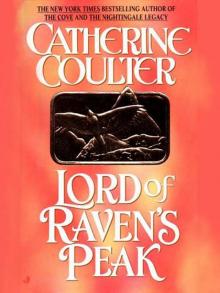 Lord of Raven's Peak
Lord of Raven's Peak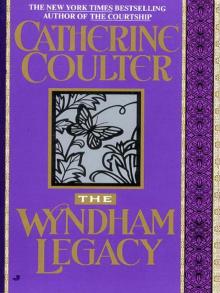 The Wyndham Legacy
The Wyndham Legacy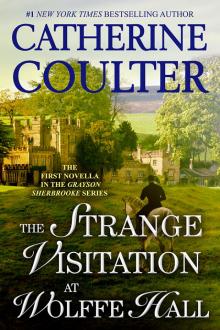 The Strange Visitation at Wolffe Hall
The Strange Visitation at Wolffe Hall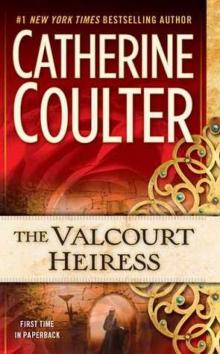 The Valcourt Heiress
The Valcourt Heiress Bombshell
Bombshell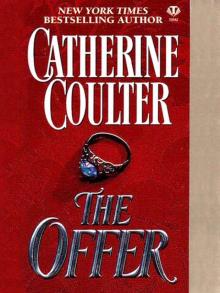 The Offer
The Offer The Edge
The Edge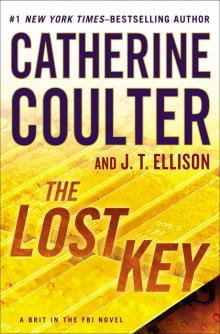 The Lost Key
The Lost Key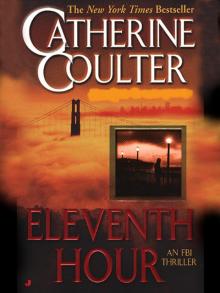 Eleventh Hour
Eleventh Hour Blindside
Blindside Devil's Daughter
Devil's Daughter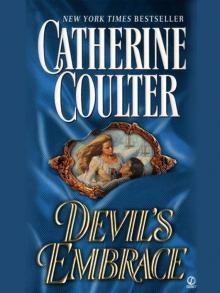 Devil's Embrace
Devil's Embrace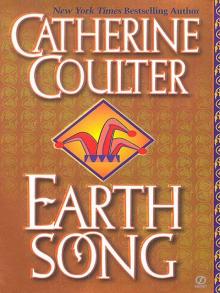 Earth Song
Earth Song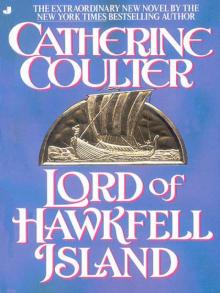 Lord of Hawkfell Island
Lord of Hawkfell Island Calypso Magic
Calypso Magic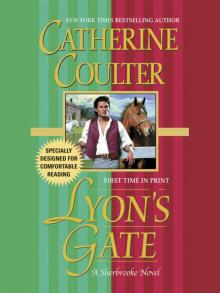 Lyon's Gate
Lyon's Gate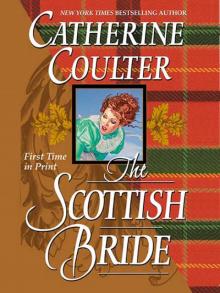 The Scottish Bride
The Scottish Bride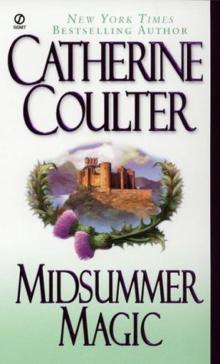 Midsummer Magic
Midsummer Magic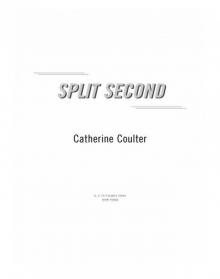 Split Second
Split Second Enigma
Enigma Blowout
Blowout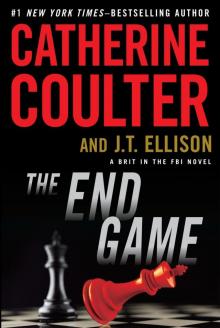 The End Game
The End Game Double Take
Double Take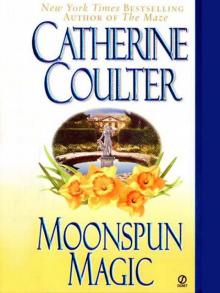 Moonspun Magic
Moonspun Magic The Courtship
The Courtship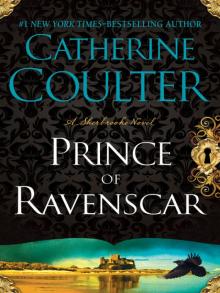 Prince of Ravenscar
Prince of Ravenscar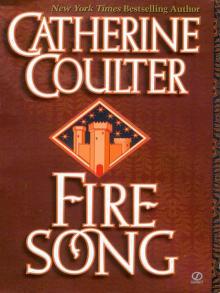 Fire Song
Fire Song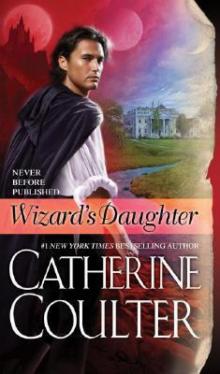 Wizard's Daughter
Wizard's Daughter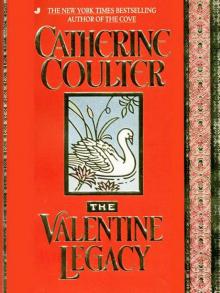 The Valentine Legacy
The Valentine Legacy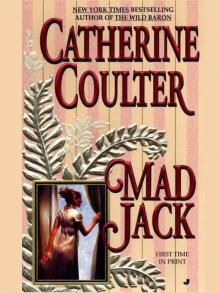 Mad Jack
Mad Jack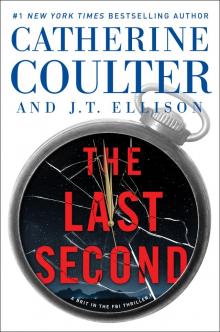 The Last Second
The Last Second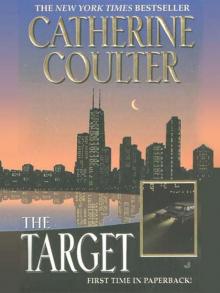 The Target
The Target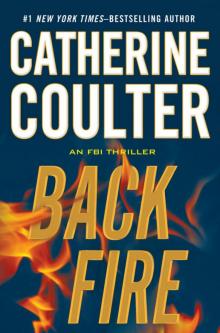 Backfire
Backfire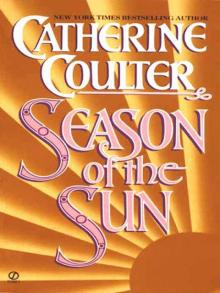 Season of the Sun
Season of the Sun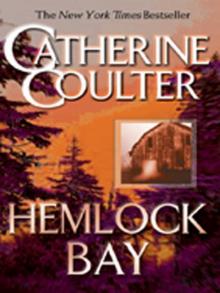 Hemlock Bay
Hemlock Bay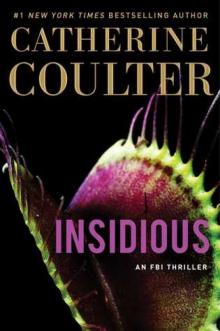 Insidious
Insidious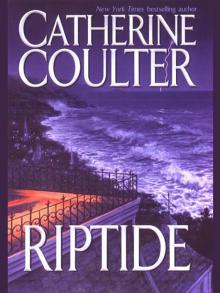 Riptide
Riptide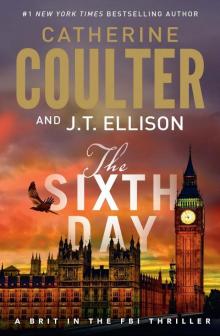 The Sixth Day
The Sixth Day Secret Song
Secret Song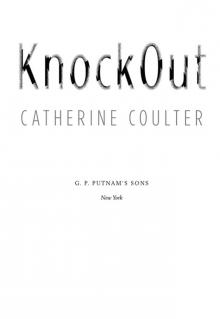 KnockOut
KnockOut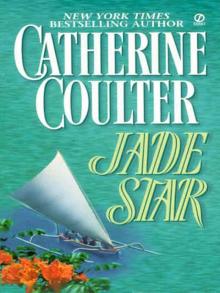 Jade Star
Jade Star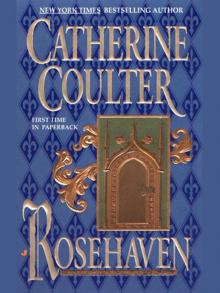 Rosehaven
Rosehaven The Hellion Bride
The Hellion Bride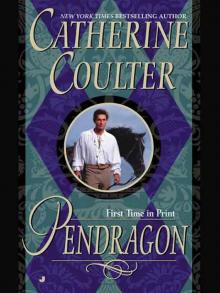 Pendragon
Pendragon Vortex
Vortex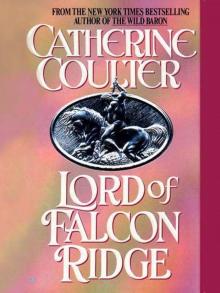 Lord of Falcon Ridge
Lord of Falcon Ridge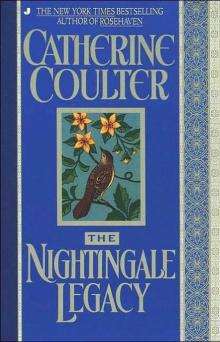 The Nightingale Legacy
The Nightingale Legacy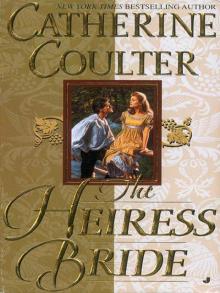 The Heiress Bride
The Heiress Bride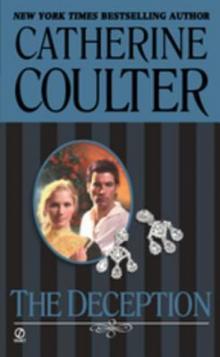 The Deception
The Deception The Maze
The Maze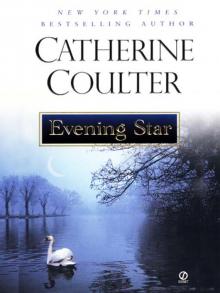 Evening Star
Evening Star Wild Star
Wild Star The Final Cut
The Final Cut Paradox
Paradox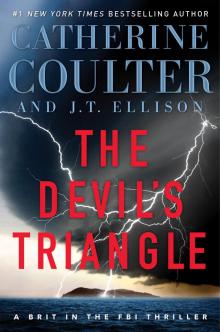 The Devil's Triangle
The Devil's Triangle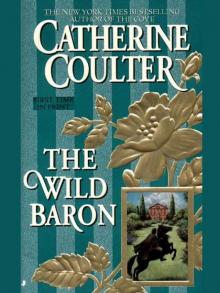 The Wild Baron
The Wild Baron Point Blank
Point Blank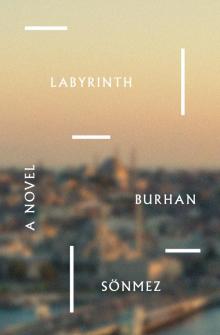 Labyrinth
Labyrinth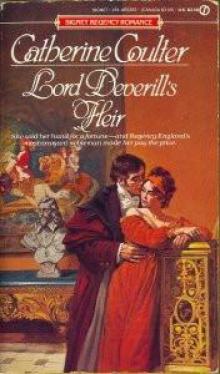 Lord Deverill's Heir
Lord Deverill's Heir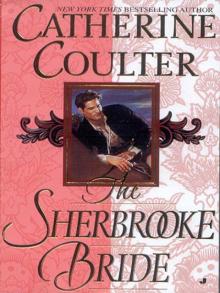 The Sherbrooke Bride
The Sherbrooke Bride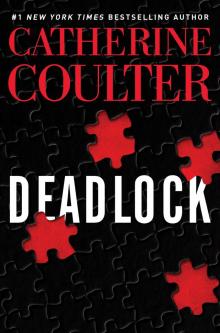 Deadlock
Deadlock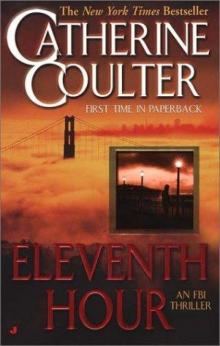 Eleventh Hour f-7
Eleventh Hour f-7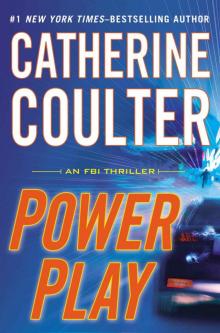 Power Play (An FBI Thriller)
Power Play (An FBI Thriller)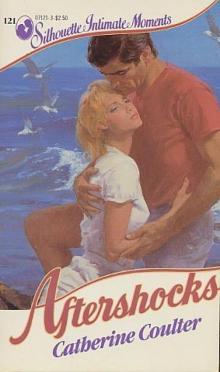 Aftershocks
Aftershocks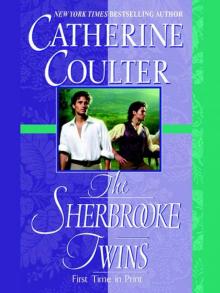 Sherbrooke Twins tb-8
Sherbrooke Twins tb-8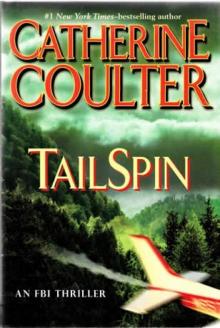 Tail Spin ft-12
Tail Spin ft-12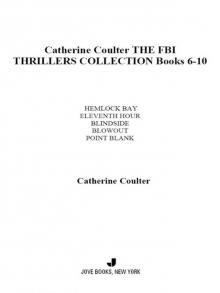 The FBI Thrillers Collection
The FBI Thrillers Collection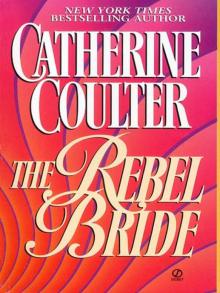 The Rebel Bride
The Rebel Bride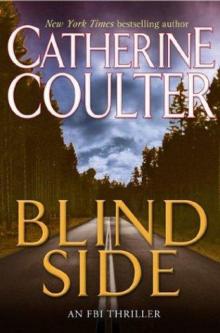 Blindside f-8
Blindside f-8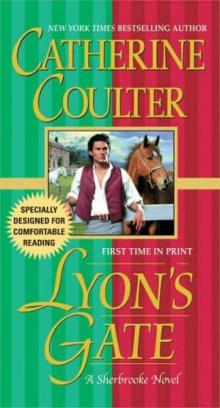 Lyons Gate tb-9
Lyons Gate tb-9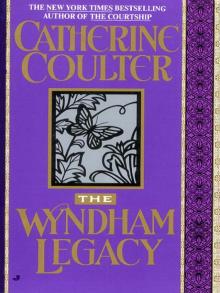 Wyndham Legacy
Wyndham Legacy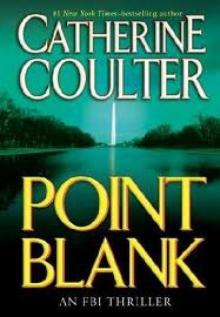 Point Blank f-10
Point Blank f-10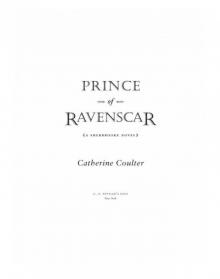 The Prince of Ravenscar
The Prince of Ravenscar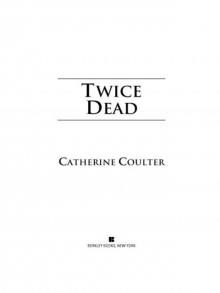 Twice Dead
Twice Dead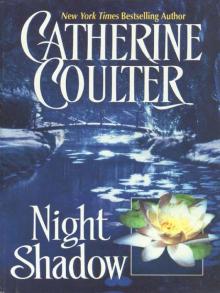 Night Shadow
Night Shadow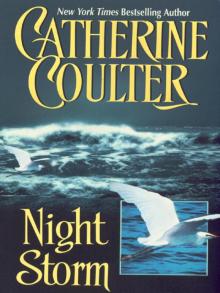 Night Storm
Night Storm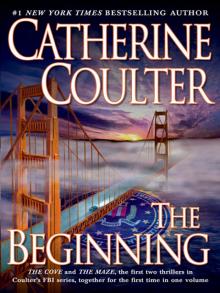 The Beginning
The Beginning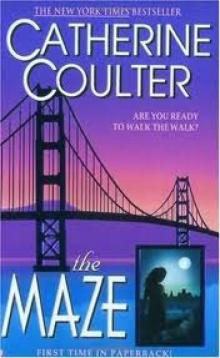 The Maze ft-2
The Maze ft-2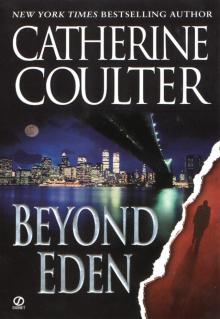 Beyond Eden
Beyond Eden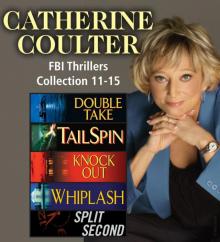 The FBI Thrillers Collection: Vol 11-15
The FBI Thrillers Collection: Vol 11-15 FALSE PRETENSES
FALSE PRETENSES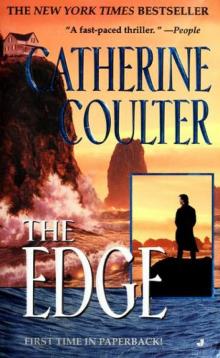 The Edge f-4
The Edge f-4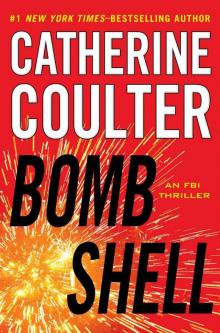 Bombshell (AN FBI THRILLER)
Bombshell (AN FBI THRILLER)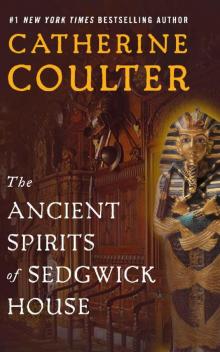 The Ancient Spirits of Sedgwick House (Grayson Sherbrooke's Otherworldly Adventures Book 3)
The Ancient Spirits of Sedgwick House (Grayson Sherbrooke's Otherworldly Adventures Book 3)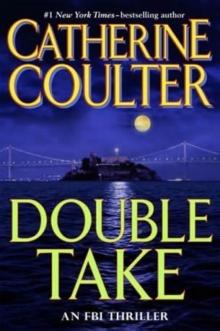 Double Take ft-11
Double Take ft-11 The Heir
The Heir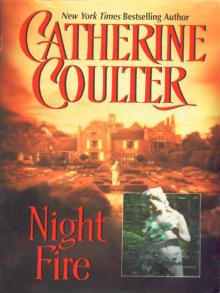 Night Fire
Night Fire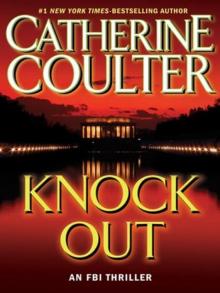 KnockOut ft-13
KnockOut ft-13 Hemlock Bay f-6
Hemlock Bay f-6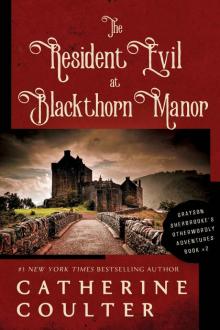 The Resident Evil at Blackthorn Manor (Kindle Single) (Grayson Sherbrooke's Otherworldly Adventures Book 2)
The Resident Evil at Blackthorn Manor (Kindle Single) (Grayson Sherbrooke's Otherworldly Adventures Book 2)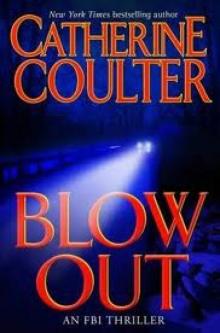 Blowout ft-9
Blowout ft-9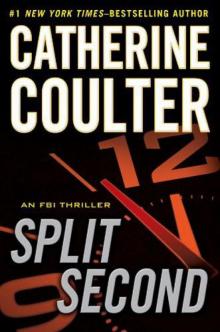 Split Second f-15
Split Second f-15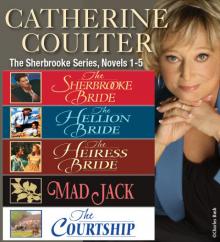 The Sherbrooke Series Novels 1-5
The Sherbrooke Series Novels 1-5 Impulse
Impulse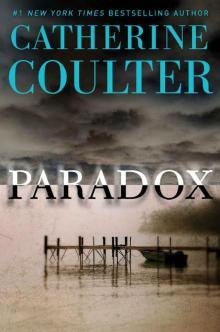 Paradox (An FBI Thriller Book 22)
Paradox (An FBI Thriller Book 22)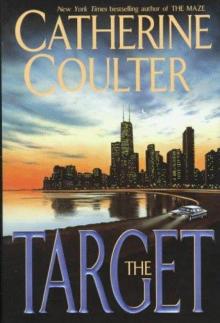 The Target f-3
The Target f-3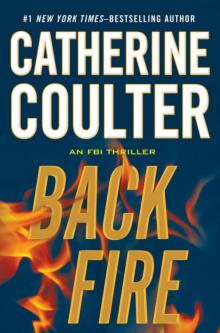 Backfire fst-16
Backfire fst-16 Born To Be Wild
Born To Be Wild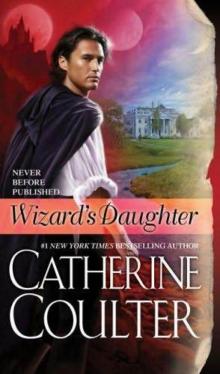 Wizards Daughter tb-10
Wizards Daughter tb-10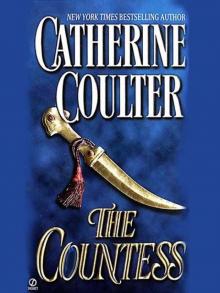 The Countess
The Countess